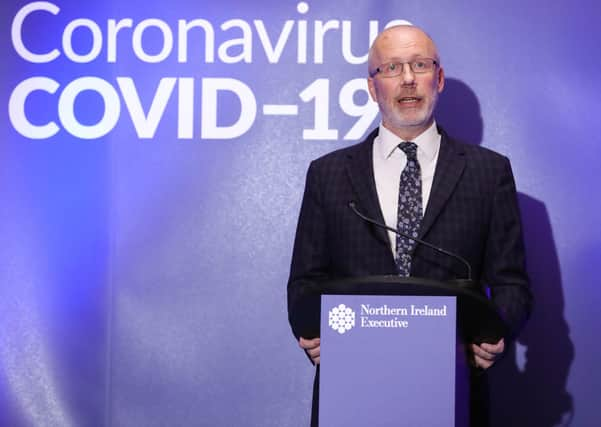Glimmer of hope that NI lockdown easing can be considered


Professor Ian Young said also any move away from the current stringent social distancing measures would only be possible if the ‘R number’ rate remained well below one.
If the R number, which relates to the number of people being infected by each carrier, is below one then the overall number of cases is falling.
As of today, the R number was 0.79.
Advertisement
Hide AdAdvertisement
Hide AdCommenting on whether a sustained 0.79 R number was low enough to start considering the other important factors with a view to begin easing the restrictions, Prof Young said: “The R number is now at a level where you could consider some relaxation if various other criteria were fulfilled.”
Speaking on the BBC’s Nolan Show radio programme, Prof Young said it was not yet clear why the current death rate – apart from the Covid-19 fatalities – was unusually high.
“There is a group of additional deaths, where as yet we don’t have an indication of what the cause has been, and every country in the world is in the same situation.
“It will take additional study and time to understand what those other deaths are due to, and the extent to which they can be attributed to the pandemic,” he added.
Advertisement
Hide AdAdvertisement
Hide AdOn Tuesday, the NI Executive published a five-stage road map back to relative normality, but with no potential dates for moving to each stage. It however, emphasised that it will be a long time before life returns to anything that resembled normal before the pandemic.
Even at step five – the final stage – remote working will still be “strongly encouraged and maintained where possible” while restaurants, cafes and pubs will only open at that point “subject to risk assessment, on a limited basis to start with”.
Also speaking to the BBC, Deputy First Minister Michelle O’Neill said she believed some degree of social distancing was inevitable until a vaccine is widely available.
She said: “I think social distancing will be a feature of our lives for probably 18 months to 24 months.
Advertisement
Hide AdAdvertisement
Hide Ad“I think until we get to the point where we have a vaccine, we are going to have to learn to live with Covid-19, and in order to do so we will have to be able to take all measures necessary to bring down the transmission rate.”
However, Ms O’Neill added: “It is possible that within the next number of weeks we could get to stage one.”